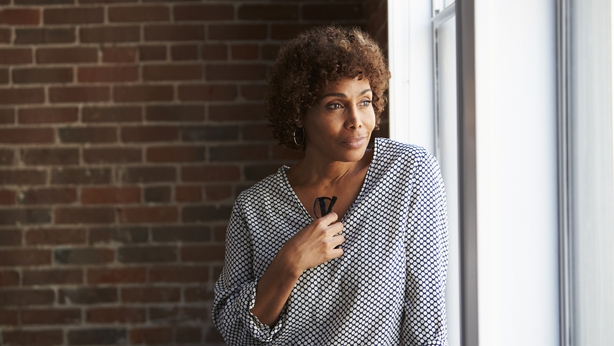Did you know that 52 is the average age at which a woman enters menopause? Dr Máire Finn joined Sean O’Rourke to talk about what the menopause is and how best to deal with it.
"It’s defined as the permanent end of your periods and your fertile or your reproductive life. It’s an easy definition to make but it’s actually difficult to diagnose… you have to have 12 months without a period and then you can say you’re in menopause…. it often actually does require a doctor’s visit to say for certain."
When it comes to individual experiences, these can vary hugely, but in general, Máire sees the following as common symptoms.
"They’re physical, psychological and sexual… Physical, people are very familiar with the hot flushes and tiredness and sleep disturbance."
"Psychological, there are very, very common. What I would often see women with more than anything else and they would often be mood variation, anxiety, irritability, poor confidence, issues around that area."
"Then the sexual ones are very common as well and this happens to every woman post menopausal where their tissues in the vaginal area dry up and that can cause problems with libido and then issues around urinary symptoms as well."

Máire says that HRT (hormone replacement therapy) can be very successful in alleviating symptoms in patients but that patients must be very thoroughly assessed before being put on such treatment and that those with breast cancer, cardiovascular diseases or a history of clotting are not eligible.
"What’s really important is that we choose the patient very carefully… It’s a very individual thing. We need to make sure the person doesn’t have any contraindications themselves or family history of issues that may be significant but generally, if you find the right patient, they do incredibly well and it actually protects their health in the future."
When it comes to giving ourselves the best chance in menopause as in life, Máire says it’s the back-to-basics solutions that give us the advantage.
"Things that we do routinely and accept routinely can be quite detrimental to your health so having a Body Mass Index or your weight kind of under control, good exercise, a good diet is better for your longer health than anything else."
Listen back to the full interview on Today with Sean O'Rourke on RTÉ Radio 1 above.

